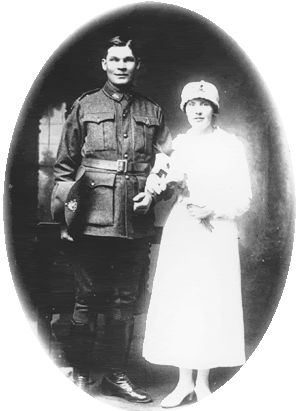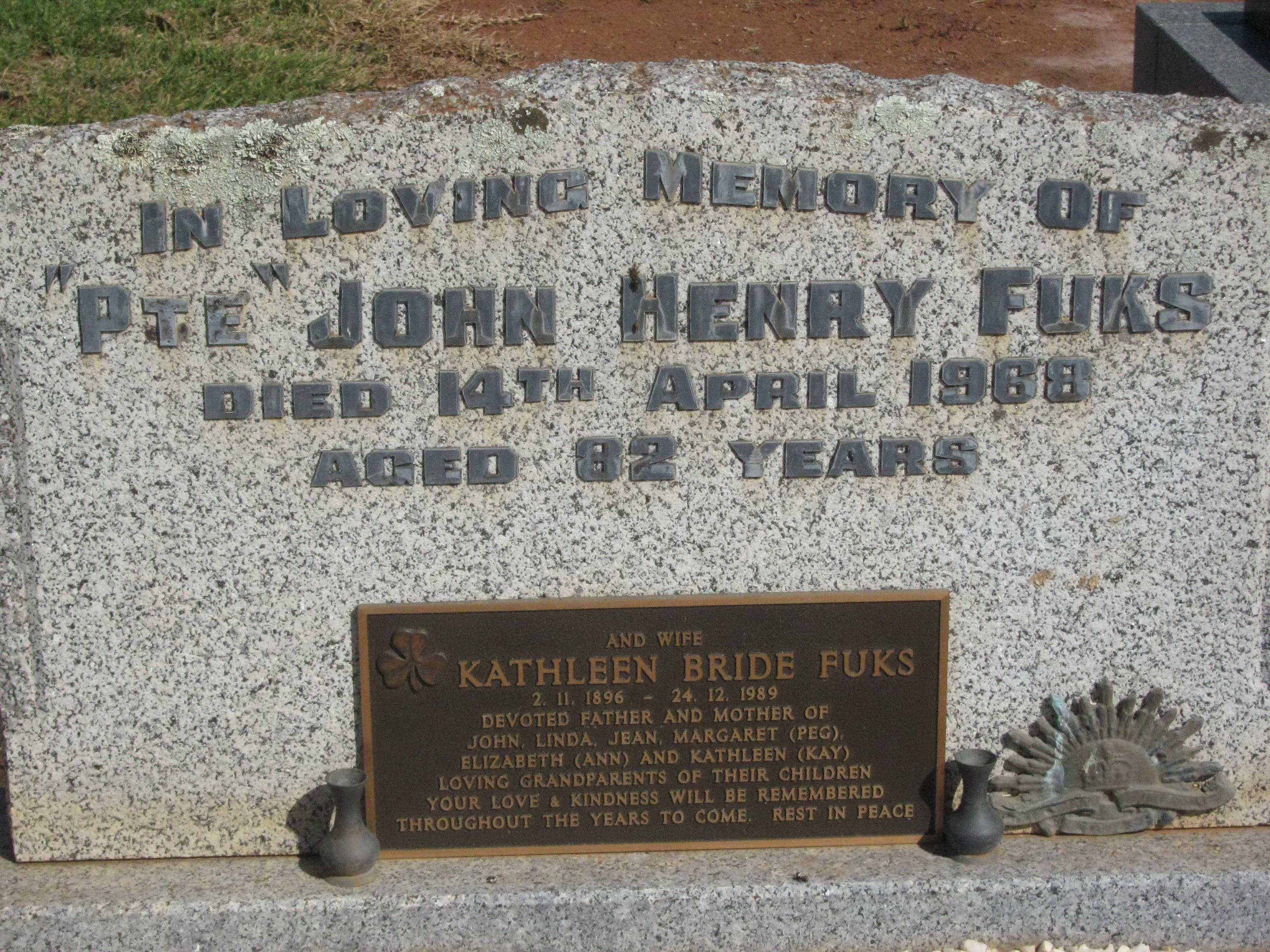John Henry Fuks
| Alias | served as Jan Heinrich Fuks |
|---|---|
| Russian spelling | Ян Генрих Фукс **Estonian spelling** Johannes Henrich Fuchs* |
| Born | 22.04.1886 |
| Place | Derpt (Tartu), Estonia |
| Ethnic origin | Estonian |
| Religion | Lutheran |
| Father | David Fuchs |
| Mother | Lissa Fuchs |
| Family | Wife Kathleen Bride Fuks (née Collins), married 1919 in England. Children: John David (1919-1988), Linda Anna (1922-1996), Jean Marion (1925-2006), Margaret Mary (1927-2003), Elizabeth Ann (1931-2002), Kathleen Julia\** |
| Residence before arrival at Australia | Served in the Russian Army for 20 months, invalided in Russo-Japanese War |
| Arrived at Australia |
from Antwerp, Belgium on 9.05.1913 per Duisburg disembarked at Melbourne |
| Residence before enlistment | Melbourne, Sydney |
| Occupation | 1916 seaman, 1917 engineer and fitter; 1919 fitter; after the war worked on the Coastal steamer SS Fitzroy , 1920 farmer* |
| Naturalisation | 1920 |
| Residence after the war | Sydney, Prospect, in 1920 he purchased farm 1622 Yenda, near Griffith NSW as part of the solider settlement scheme. He lived there until retired and moved into Griffith* |
| Died | 14.04.1968, Griffith, NSW |
Service #1
| Service number | 5775 |
|---|---|
| Enlisted | 17.12.1917 |
| Place of enlistment | Sydney |
| Unit | 1st Pioneer Battalion |
| Rank | Private |
| Place | England, 1918-1919 |
| Final fate | RTA 6.09.1919 |
| Discharged | 6.12.1919 |
Materials
Digitised naturalisation (NAA)
Digitised service records (NAA)
Digitised Embarkation roll entry (AWM)
[Australian Imperial Force Headquarters (London) ... Medical personnel administration files]: [/3] 5775 Private J H Fuks](http://recordsearch.naa.gov.au/scripts/AutoSearch.asp?O=I&Number=8728417) (AWM)
Digitised application for admission relatives and friends (NAA)
* information from granddaughter Robyn Crick
** Family tree on Ancestry.com
Blog article
From Robyn Crick's letter:
During his time in England whilst at the Southhall military hospital as a ward man, his main duties were as an interpreter. He was well educated and could speak and read English, Russian and German as well as Estonian. He helped with the basic questioning of any POWs. He refused to have anything to do with the torture of POWs. He read all non-English papers on the POWs and removed and translated the important documents POWs had. He also wrote letters for the POWs to be sent back to their families when he could. This is what my Grandmother told me, I am sure it is correct. When a group of POWs arrived at the Hospital a German Captain? (not sure of the rank), asked Pop for help and handed him a Lugar gun, saying he would be shot if he was caught with it, Pop took the gun and hid for him, he kept the gun and it is now in Narrandera museum. He had such strong Christian beliefs in loving your enemy, he was willing to put himself at risk to save a stranger.
Newspaper articles
A technical assault. - Murrumbidgee Irrigator, Leeton, 2 November 1926, p. 4.
Employee or guest. - Narandera Argus and Riverina Advertiser, 15 November 1927, p. 4.
Estonians at law. - Murrumbidgee Irrigator, Leeton, 18 November 1927, p. 3.
Gallery

John Henry and Kathleen Fuks, 1919
Courtesy of Robyn Crick

John Henry Fuks (Griffith Cemetery, Griffith, NSW, Australia)
 Russian Anzacs
Russian Anzacs